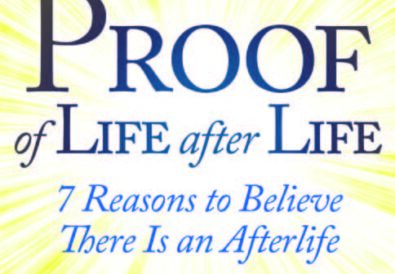Let’s say you frequently clashed with a parent who didn’t allow you to set your own rules and schedules as a teenager. You might have been infuriated by the lack of control and the feelings of inferiority. You might not connect that experience with the anxiety and panic you now feel when another person—a colleague, romantic partner, or friend, for instance—tries to take control of a situation you are perfectly capable of handling. But the link is there, lingering in your heart and sending messages of stress up toward your brain via the vagus nerve.
Or maybe you were fortunate not to experience any major battles with your parents but had a traumatic illness or invasive surgery when you were young and now demonstrate fleeting feelings of panic in situations where you feel out of control of your safety or health, like when flying in an airplane. These are examples of how painful experiences become stuck in our physiology.
In order to address our pain, which is an essential step toward mastering stress, we need to be able to identify and release the painful or unpleasant sensations that often get stuck within our physiology. That is how you address autonomic imbalance in the body.
This can be a tricky mental hurdle for people to conquer. Many of us are used to traditional cognitive approaches such as talk therapy, visualization, and goal setting, which call for us to tune into our minds; but the notion of clicking into our heart and asking it how it feels can seem foreign. We are afraid of facing our deeper pain because we have not learned a specific method for letting go of the physiological experiences. It is not so much the people who hurt us or the cognitive memories of the experience, but our own bodily sensations that have become our adversary. Anxiety about being hijacked by uncomfortable feelings keeps us paralyzed, and our minds transpose those past sensations onto new situations to seek release.
If you need evidence of how this dynamic plays out in real life, look no further than the last time you reached out to a friend or family member to vent about an upsetting experience. It’s a common human instinct to reach out to trusted loved ones when we’re feeling distraught. Our support network is there to catch us when we fall; these people know us intimately, and it can feel cathartic to unload, to rehash, even to cry with someone who cares for us.
But I’ll bet that if you earnestly reflect on these moments, you’ll realize that even though sharing your pain with a loved one seems like a calming, soothing experience, doing so often rekindles your adverse emotions. Whether you’re recounting an argument with a friend, lamenting a harsh review from your boss, describing a fear, or just unloading after a really annoying day, you’re revisiting a painful memory. My guess is that while you’re talking, you don’t remain totally calm and estranged from your emotions. Your heart rate escalates. You might raise your voice or weep. You might feel like you’re right back in the unpleasant scenario even though you’re in a totally neutral space like a friend’s kitchen, a colleague’s office, or a neighborhood café.
Many of my techniques require you to let go of the mind’s processes, resist the urge to get into your head, and just trust in the somatic work. This is critical because the cognitive approach will block you from generating a physiological state that can be encoded into your body. Talk therapy, visualization, goal setting, and other cognitive techniques are certainly important, but to truly optimize the way your body interprets and manages stress, you need to gain control over your physiology as well.
Excerpted from HEART BREATH MIND: Train Your Heart to Conquer Stress and Achieve Success by Leah Lagos, Psy.D., published by Houghton Mifflin Harcourt © 2020. All rights reserved.
 Leah Lagos, Psy.D. is an internationally renowned health and performance psychologist specializing in heart rate variability (HRV) biofeedback. With nearly 15 years’ experience integrating the mind and body to reduce anxiety and boost resilience, Dr. Lagos is a recognized leader in peak performance training. In addition to consulting at the annual NFL scouting combine and providing onsite support on multiple PGA tours, she works with elite performers in sports, entertainment, medicine, and business—from CEOs and hedge fund managers to Olympians, surgeons, and ballerinas. Dr. Lagos combines biofeedback and psychological strategies to help clients achieve optimal performance in health and life. Dr. Lagos has appeared on The Today Show, NBC Nightly News, and MSNBC, and has been interviewed by CNN, Golf Digest, Sports Illustrated, Harper’s Bazaar, Psychology Today, and Women’s Health. drleahlagos.com and follow Leah on Twitter and Facebook @DrLeahLagos.
Leah Lagos, Psy.D. is an internationally renowned health and performance psychologist specializing in heart rate variability (HRV) biofeedback. With nearly 15 years’ experience integrating the mind and body to reduce anxiety and boost resilience, Dr. Lagos is a recognized leader in peak performance training. In addition to consulting at the annual NFL scouting combine and providing onsite support on multiple PGA tours, she works with elite performers in sports, entertainment, medicine, and business—from CEOs and hedge fund managers to Olympians, surgeons, and ballerinas. Dr. Lagos combines biofeedback and psychological strategies to help clients achieve optimal performance in health and life. Dr. Lagos has appeared on The Today Show, NBC Nightly News, and MSNBC, and has been interviewed by CNN, Golf Digest, Sports Illustrated, Harper’s Bazaar, Psychology Today, and Women’s Health. drleahlagos.com and follow Leah on Twitter and Facebook @DrLeahLagos.

















